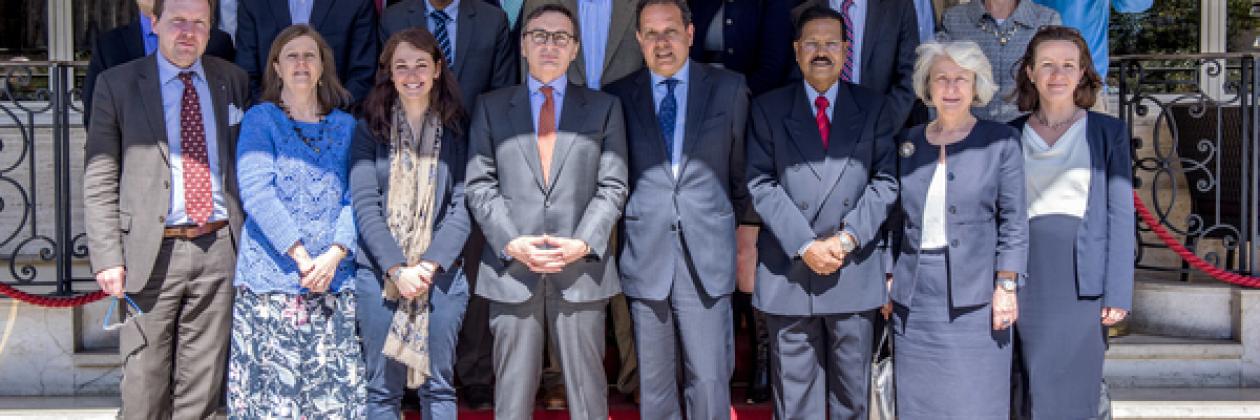Catching up with reality: Rethinking Global Economic Governance for Development
On 8 July 2015 Dr Emily Jones presented a forthcoming paper on ‘Rethinking Global Economic Governance’ to fellow members of the E15 expert group on Trade, Finance and Development. The ways in which low-income developing countries interact with the global economy are evolving rapidly, she argued, and the policy debate needs to catch up. Analysis is often focused on deadlocks and stagnation in the WTO, World Bank and IMF. But the economic agreements, standards, and norms that matter most for low-income developing countries are increasingly bilateral or regional in nature. Many involve low-income developing countries negotiating directly with private sector actors, including in public-private partnerships and during sovereign bond issuances.
Negotiations are often highly asymmetrical, as developing country governments negotiate with parties with more information, human resources and market power. Precisely because they occur outside of established multilateral fora, these new negotiations are subject to few rules and little public scrutiny, and fewer resources are available to support low-income governments to negotiate effectively. Moreover, there are complex, underappreciated and sometimes conflicting, overlaps between new agreements and standards in trade, investment and finance. Dr Jones made a series of concrete proposals for levelling the playing field and improving coherence in global economic governance.





